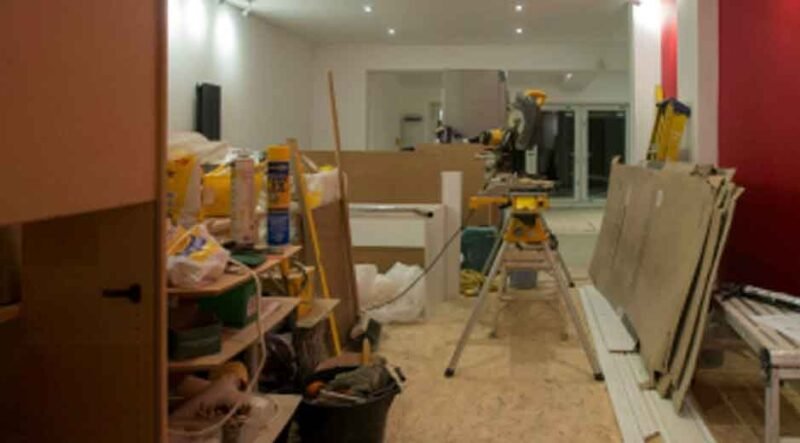Home renovation projects can be exciting opportunities to transform a living space into something more functional and beautiful. Whether it is updating a single room or revamping the entire home, renovations require careful planning and decision-making. However, many homeowners fall into common traps that turn their dream projects into stressful and costly experiences.
In places like Orlando, Florida, where home improvement is increasingly popular, understanding these mistakes in advance can help ensure a smoother process and a more satisfying result.
Overlooking Bathroom Design Details
Bathrooms are among the most frequently renovated areas in a home, and they require both aesthetic and practical considerations. One of the most common mistakes homeowners make is underestimating the complexity of a bathroom remodel.
Proper plumbing, waterproofing, and ventilation are essential to prevent long-term issues such as leaks or mold growth. Many homeowners rush into bathroom makeovers focusing only on the visual appeal and neglect the functional aspects.
Hiring a local Orlando bathroom remodeling company can help ensure that design and functionality are balanced perfectly. Experts can advise on suitable materials, layout optimization, and modern features that enhance both comfort and value. To avoid costly errors, always plan the bathroom layout around existing plumbing lines when possible and prioritize moisture-resistant materials.
Ignoring a Realistic Budget
Setting a realistic budget is one of the first and most critical steps in any renovation project. A common mistake homeowners make is focusing solely on the cost of materials and labor, forgetting to account for unexpected expenses. Issues such as hidden water damage, electrical upgrades, or structural repairs can easily inflate costs. Without a financial cushion, these surprises can bring the entire project to a halt.
To avoid this, establish a detailed budget that includes an emergency fund for contingencies. Typically, setting aside a portion of the total budget for unforeseen expenses can provide peace of mind and prevent delays. Also, research material costs in advance and get multiple quotes from contractors.
Poor Planning and Lack of Clear Vision
A successful renovation starts with a clear and well-thought-out plan. Many homeowners make the mistake of beginning a project without having a complete design or understanding how different spaces will connect. This lack of direction often leads to last-minute changes, design inconsistencies, and wasted materials.
To avoid such issues, take the time to visualize the final outcome before beginning any demolition or construction. Create a detailed design plan, including color schemes, finishes, and furniture placement.
Choosing Aesthetics Over Functionality
It is easy to get carried away with trendy designs and stylish fixtures, but functionality should always come first. Many homeowners regret prioritizing appearance over practicality, especially in high-traffic areas like kitchens and bathrooms. For instance, beautiful but porous materials may not hold up well under frequent use, and intricate designs might require high maintenance.
The best approach is to strike a balance between aesthetics and usability. Select durable, easy-to-clean materials that complement your style without compromising functionality. Think about how the space will be used daily and plan accordingly.
Attempting Too Much DIY
While do-it-yourself projects can save money, overestimating one’s skills often leads to more harm than good. Tasks such as plumbing, electrical work, or structural modifications should be left to licensed professionals. Mistakes in these areas can cause safety hazards or lead to expensive repairs later on.
For homeowners who wish to take on part of the renovation themselves, limit DIY efforts to cosmetic tasks like painting, assembling furniture, or installing decorative elements. Always be honest about your capabilities and understand that some parts of the project may require expert intervention.
Neglecting Proper Permits and Regulations
Skipping permits or failing to adhere to local building regulations is another major mistake that can cause serious issues. Many homeowners assume that permits are unnecessary for small renovations, but even minor structural changes may require official approval. Ignoring this step can result in fines, delays, or problems when selling the property.
To prevent this, check local building codes before starting any work. Your contractor should also be familiar with the necessary permits and inspection procedures.
Failing to Account for Lighting
Lighting plays a significant role in defining the atmosphere and functionality of a space. Yet, it is often an afterthought during renovations. Poor lighting can make even the most beautiful design appear dull or impractical. Insufficient natural light or the wrong type of fixtures can affect comfort and energy efficiency.
Incorporate a layered lighting plan that includes ambient, task, and accent lighting. Natural light should be maximized whenever possible, as it enhances the sense of space and improves mood. Consider energy-efficient bulbs and adjustable fixtures that allow you to control brightness according to the time of day or specific activities.
Ignoring the Flow Between Spaces
Another common mistake is focusing too much on individual rooms without considering how they connect. Poor flow between spaces can make a home feel disjointed or cramped. For example, mismatched flooring or inconsistent color palettes can disrupt visual harmony.
To create a cohesive design, maintain consistency in materials, tones, and styles throughout the home. Open floor plans should have subtle transitions that define zones without breaking the visual flow.
Rushing the Timeline
In the excitement to see results, homeowners often push contractors to finish renovations too quickly. This rush frequently leads to sloppy workmanship, overlooked details, and costly corrections later. Quality renovation work requires adequate time for each phase, from design and demolition to installation and finishing touches.
Plan the timeline realistically, keeping in mind that delays can occur due to weather, material availability, or unexpected findings during construction. Communicate clearly with contractors about deadlines but prioritize quality over speed.
Overfilling Spaces with Furniture and Decor
Once renovations are complete, it can be tempting to fill new spaces with furniture and accessories immediately. However, overdecorating can make a freshly renovated home feel cluttered. This common mistake undermines the very sense of openness and simplicity that renovation projects often aim to achieve.
Renovating a home is a rewarding experience that brings both challenges and satisfaction. Avoiding common mistakes such as poor planning, unrealistic budgeting, and ignoring functionality can make all the difference. With careful preparation, expert guidance, and attention to detail, homeowners can achieve beautiful, lasting results that enhance comfort and add long-term value to their homes.









